Previously on “What does a green coffee buyer do”
I have spent several frantic weeks babysitting the coffees I selected from the 2018/2019 Ethiopia harvest. Working with our team at Tropiq Ethiopia, we have shepherded each lot through the convoluted maze of paperwork and approvals, from warehouse to mill to ship. Finally, they have arrived in our warehouse in Belgium.
I order arrival samples (ARS) to be sent to our lab in Oslo and I cup them to determine two things.
- Is this the same coffee I booked in Ethiopia?
- Is it in the same great condition as it was when I cupped the PSS?
This is the most anxious moment for a green coffee buyer at an importing company. If the answer to either of these questions is no… well… we’re kinda screwed.
Who carries the risk?
It depends on the terms of your contract and your position in the supply chain.
The most common contract term for shipping coffee internationally is Free on Board, or FOB. This is an Incoterm, an internationally recognised commercial term defined by the International Chamber of Commerce which oversees international commercial law. (The FOB price is the amount paid to the exporting company for that coffee.)
FOB is a term in a contract between the seller and a buyer and it refers to the moment the coffee crosses from the dock onto the ship. At that moment, responsibility for the coffee is transferred from the seller to the buyer. Who are these two actors in the supply chain and what are their responsibilities?
The Seller:
Usually an exporting company.
Seller’s responsibilities
- Providing sample material so the buyer can make their selections
- Ensuring the selected coffee is reserved with the supplier (which could be a farmer, a washing station, a cooperative, an agent or another exporter), and processed according to the buyer’s instructions.
- Following the document and shipping instructions and ensuring the export documents are correct. (For more info on these see Part 5: Shipping and scroll down to the subheading, Documents.)
- Delivering PSS for approval.
- Once PSS is approved, booking transport to port.
The Buyer:
A roastery buying directly from origin, or an importer. Nordic Approach is an importer, and therefore the buyer in these contracts.
Buyer’s responsibilities
- Carefully monitoring and recording all quality parameters like moisture content and water activity of the PSS.
- Supplying the document and shipping instructions.
- Approving all paperwork and ensuring it meets the customs requirements of the country where your port is located.
- From the moment PSS is approved, the present and future quality of each lot.
Some less than ideal scenarios
As importers, Nordic Approach acts as the buyer in these coffee transactions. In all origins, especially in Ethiopia, we rely on people we trust to minimise risk. Through strong relationships built over many years, plus our own hard-earned experience, we have significantly reduced the issues described below. However they do still happen. So, who is responsible and how do we deal with these problems?
The coffee was rejected at port
There was a problem with the paperwork. The bag marks don’t match the bill of lading, there are errors on the phytosanitary certificate, or the bag tags are missing.
While the seller was responsible for most of these issues, they are not always so eager to solve these problems. Often we, the buyer, end up taking the loss.
Problems with certification
There was an error on the organic certificate and the coffee can not be sold as certified organic in the market where it was imported.
Again, the seller was responsible for getting this right, but sometimes they are not so efficient at fixing the problem, and the coffee enters the country without the certificate. In some cases we have to sell the coffee without organic certification.
Defective or aged coffee
The coffee arrives tasting aged, mouldy, or generally not of the quality we purchased.
It is rare, but sadly it happens. Coffee sat too long after milling in Addis, or perhaps the coffee was simply swapped somewhere along the line for an inferior grade coffee. Corruption exists.
This is the fault of the seller and while there are international laws to protect Nordic Approach as buyers, enacting them is difficult. If a coffee arrives drastically inferior to PSS we approved, we will check the quality parameters like water activity and moisture content. We will also do a physical evaluation of the greens to assess if there are any primary defects, or if the number of secondary defects is higher than stipulated grade. If any of these quality parameters have changed, we have 28 calendar days to make a claim, as per the EU Coffee Contract.
Unfortunately, even when our case is rock solid, there is little chance of a full refund. This is especially true in Ethiopia where it is almost impossible to wire money out of the country due to government regulations. Best case scenario: We get a credit or a discount applied to coffee we purchase from the supplier for the next harvest.
There was a hole in the container and the coffee arrived damaged
This is the fault of the shipping company or exporter who oversaw the loading of the container. Again, we would have to make a claim to the shipping line or exporter, and hope we can reclaim some of the loss.
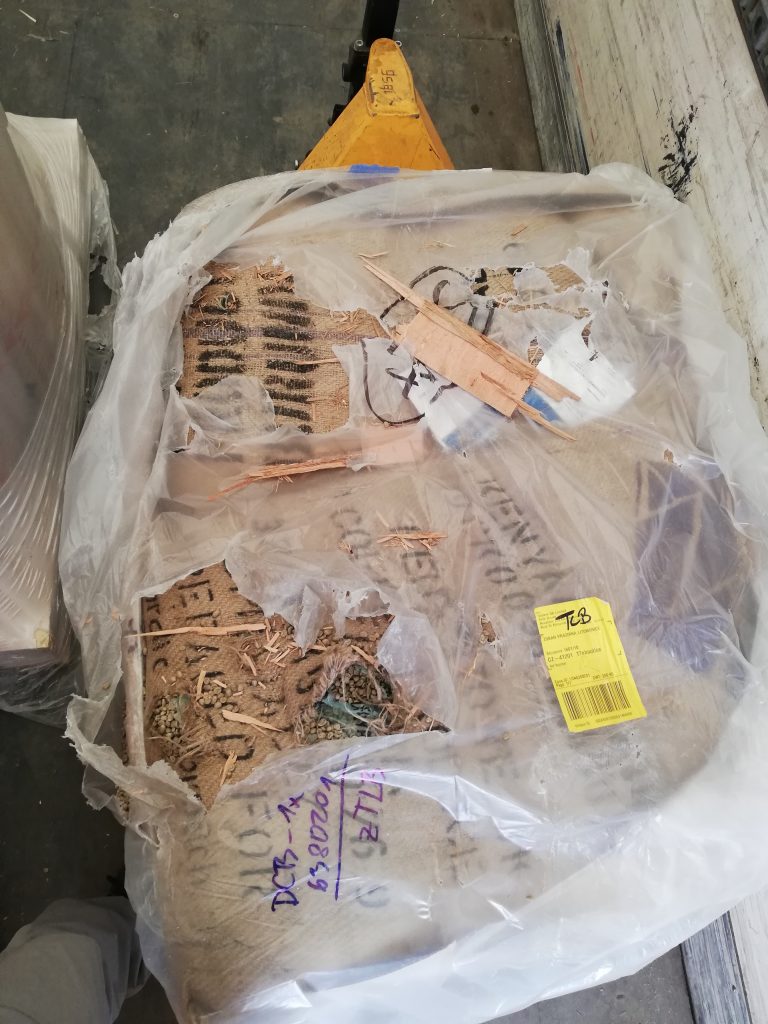
It doesn’t happen often, but it can happen – bags are damaged in transit 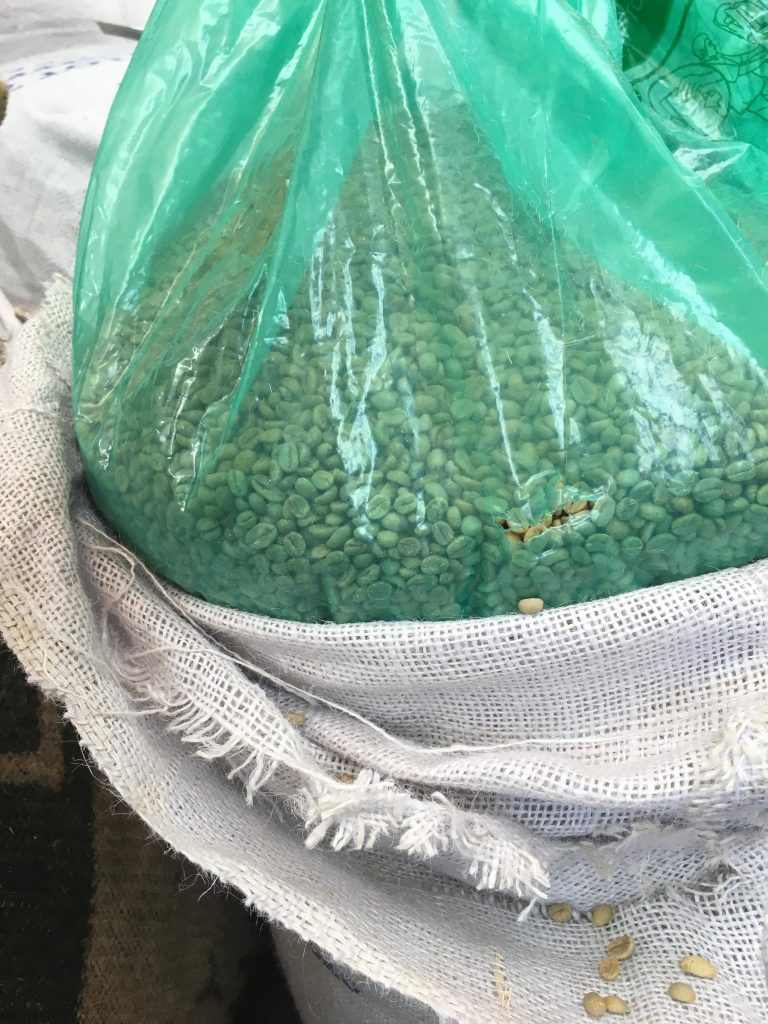
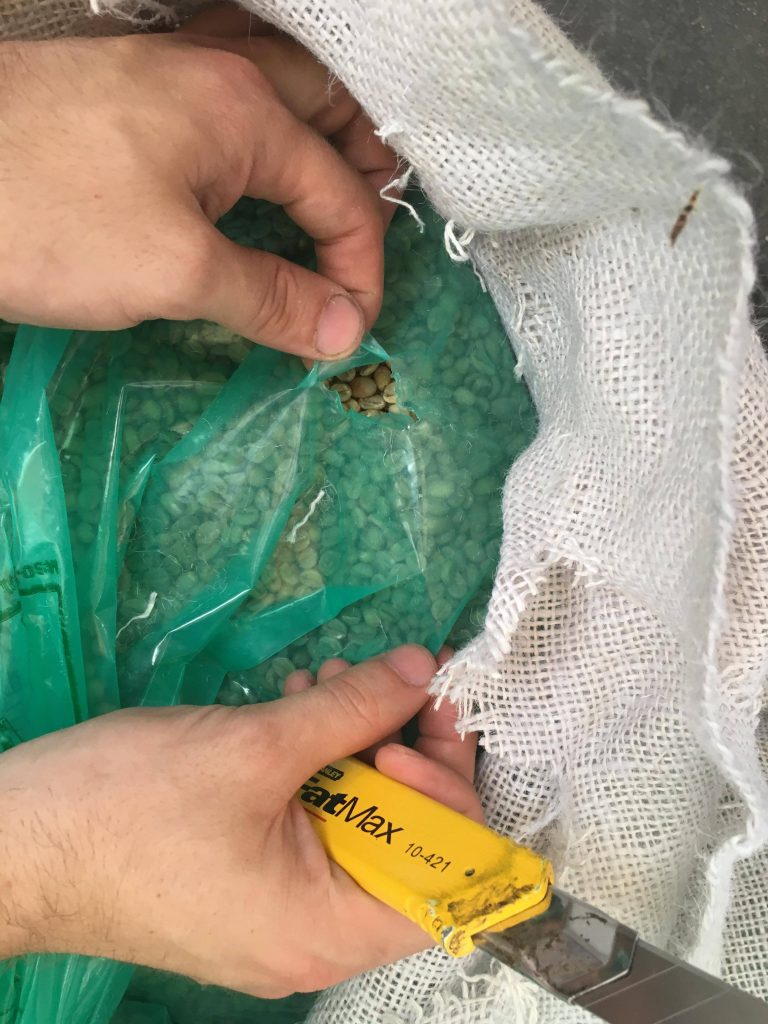
The buyer carries most of the risk
As you can see, under pure FOB terms, the buyer, be it an importer or a roastery buying direct, is the largest bearer of risk.
FOB vs Spot = balancing risk and cost
Many roasters want to work more deeply in the supply chain and forge direct partnerships with producers and farmers. All specialty roasters want to reduce the cost of green coffee, while maintaining the quality. For these reasons, roasters are often looking for ways to work more directly in origin. We want to help these roasters, which is why we turned our sourcing department into a separate company, which is Tropiq.
Tropiq relies on long-standing relationships, and many years of experience in sourcing and logistics to minimise the risks of buying on FOB terms. We have a good idea of which suppliers can deliver on their promises, which documents need double and triple checking, and which shipping lines are most likely to respect your coffee. In Ethiopia, arguably one of the most complicated coffee origins, we have people on the ground watching your coffee at every step in the process.
However, roasters buying direct from origin still carry a much higher risk than customers buying Spot. With this risk comes reward: Buying direct means paying the FOB price.
There is a significant difference between the FOB price of a coffee at origin, and the Spot price of a coffee located in a warehouse in Europe. Risk is one cost factored into the Spot price. Other costs include sea freight, the transport from port to warehouse, warehousing fees, plus staff costs and overhead. To put it plainly, you pay more for the coffee, but you don’t have to worry about going broke because of a mistake in the documentation, or coffee spoiling while en route from origin.
Some risk, some reward
For customers who want to go deeper into the supply chain, but are not ready to carry the full financial risk of FOB, there is a middle ground, which is to forward book higher volumes of coffee using Nordic Approach as your importer. More on this option in the next blog post.
Nordic Approach transparency reports
If you would like to know the exact breakdown of costs from FOB to the price you paid for any coffee you purchased from Nordic Approach, we can provide a personalised transparency report. Contact your sales rep to request yours.
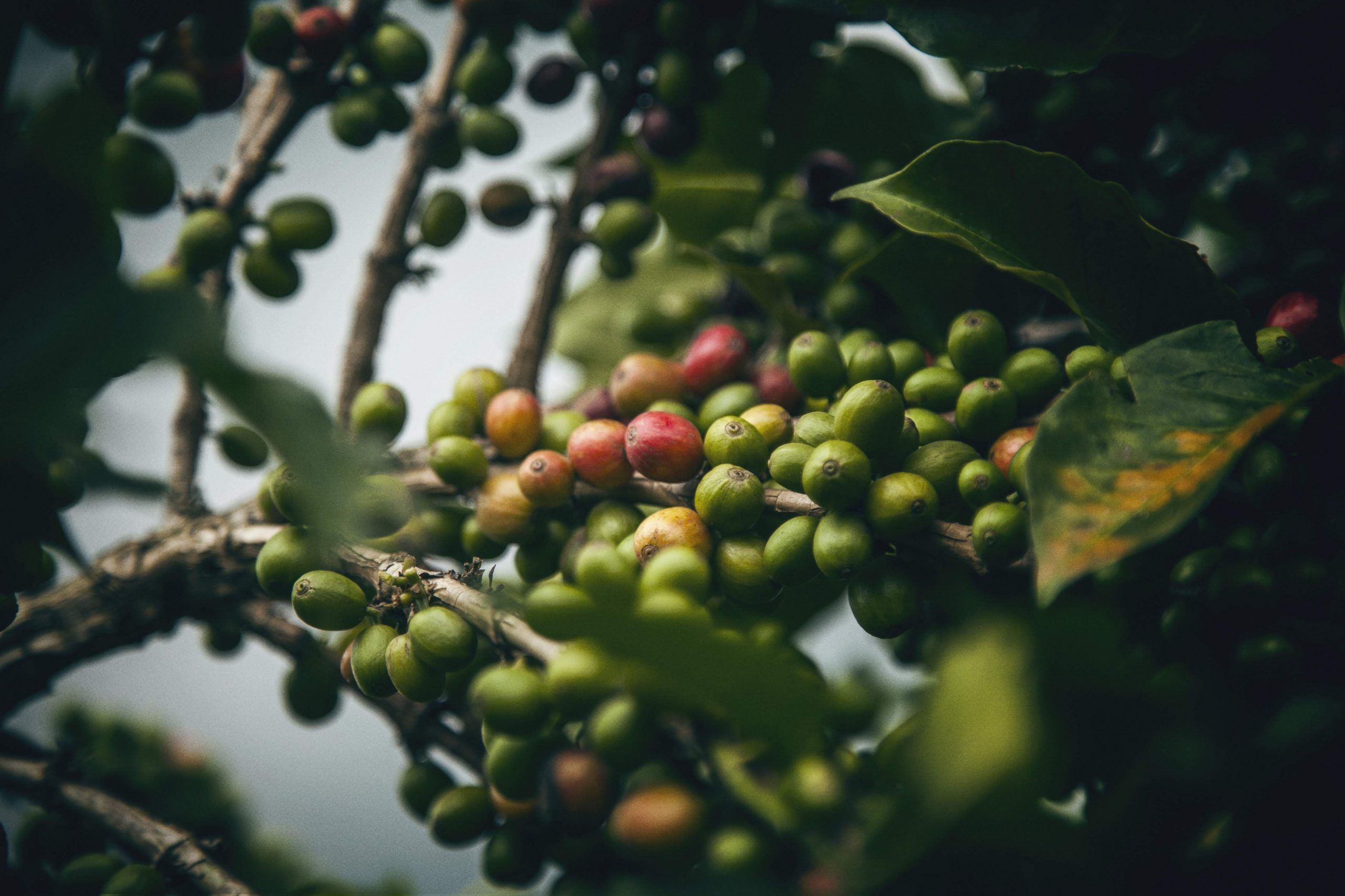
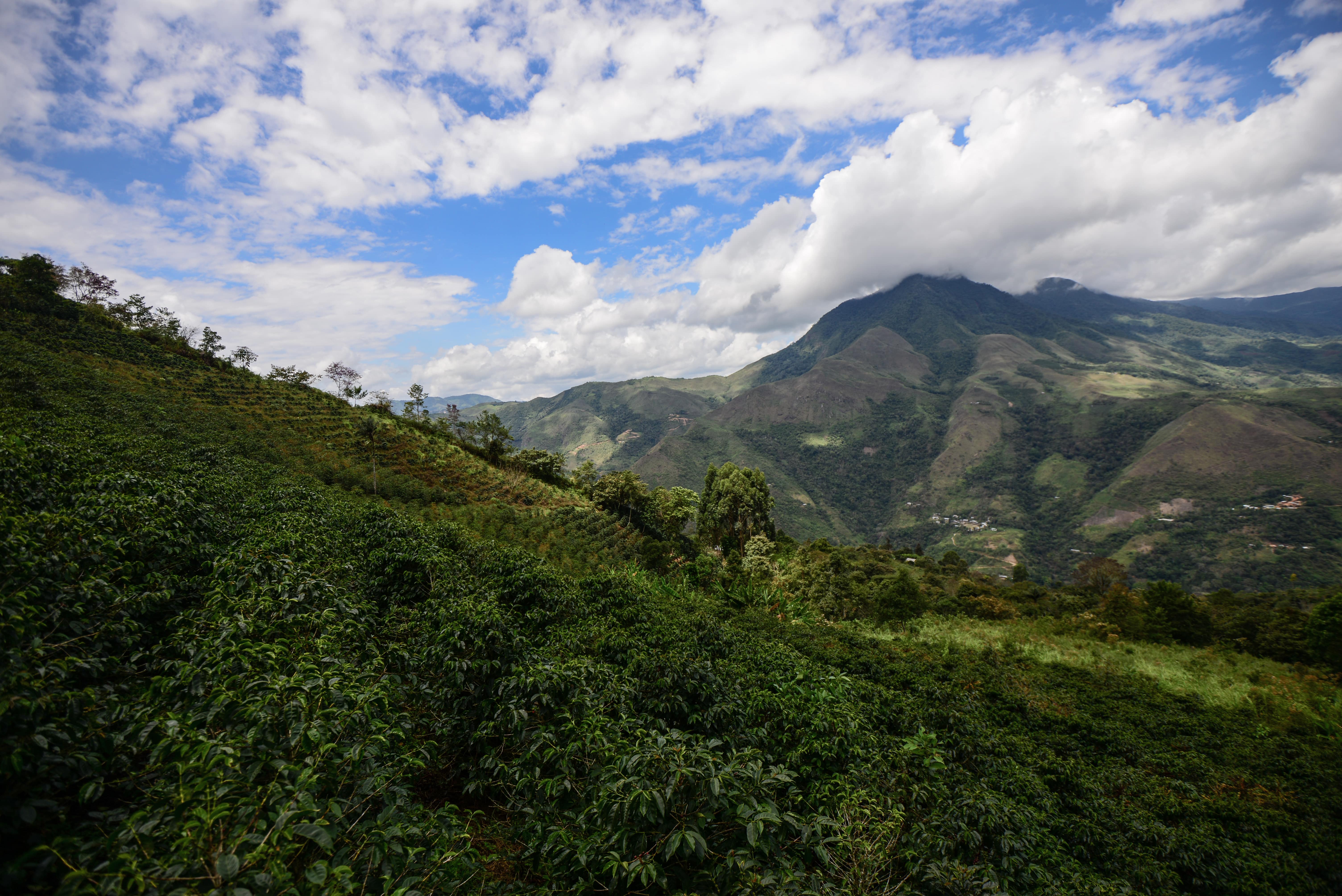

0 Comments